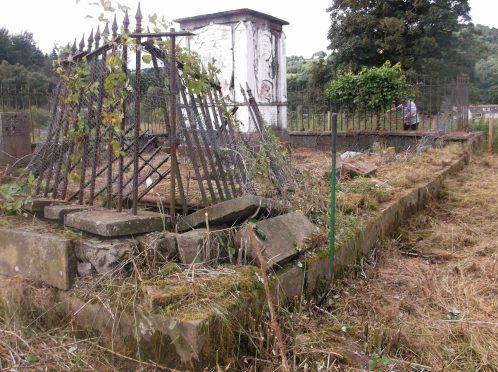A Highland community has been granted planning permission to rebuild an historic graveyard.
The ancient Cnoccan Buraidh cemetery on the outskirts of Drumadrochit is the final resting place for a number of notable people, but has fallen into disrepair over the past 20 to 30 years.
Among those buried at the Glen Urquhart site are Sir Charles Grant, the commanding officer of the Army in Scotland when World War II broke out, and a Jacobite lieutenant who fought at Culloden.
The burial ground was the final resting place for several members of the Grant family and has religious significance stretching as far back as the 5th century.
It sits on what is now farmland north of the current Glen Urquhart High School and has fallen into disrepair, with the walls crumbling and overgrown.
Present-day members of the Grant family are supportive of efforts to restore the site.
Highland Council has now granted planning permission for the Grade C monument to be restored.
David Fraser, of Glen Uruquhart Community Council, said receiving planning permission was a “big hurdle” cleared for the project.
He said the next step was to find suitably qualified stonemasons to help draw up a method statement describing how the work would be carried out.
That will help determine how much funding is required to carry out the work.
He said: “At this stage we don’t have a timescale for work starting.”
Mr Fraser has previously said they have secured pledges of financial support which should make the project viable.
Among those buried at Cnoccan Buraidh is Patrick Grant of Lochletter, who fought in the battles of Prestonpans and Falkirk during the second Jacobite uprising.
He also fought at Culloden as a lieutenant of the Glengarry regiment.
Another notable figure with an impressive military background is Sir Charles, who served as the commanding officer of the Army in Scotland between 1937 and 1940, during which period he was also governor of Edinburgh Castle.
He was buried in Glen Urquhart in 1950, aged 74.
Sir Theodore Chambers, who died in 1957, is also buried there, having served as chairman of a major tea producer in Ceylon, chairman of Welwyn Garden City for 29 years, and secretary and controller of the national war savings scheme during World War I.
